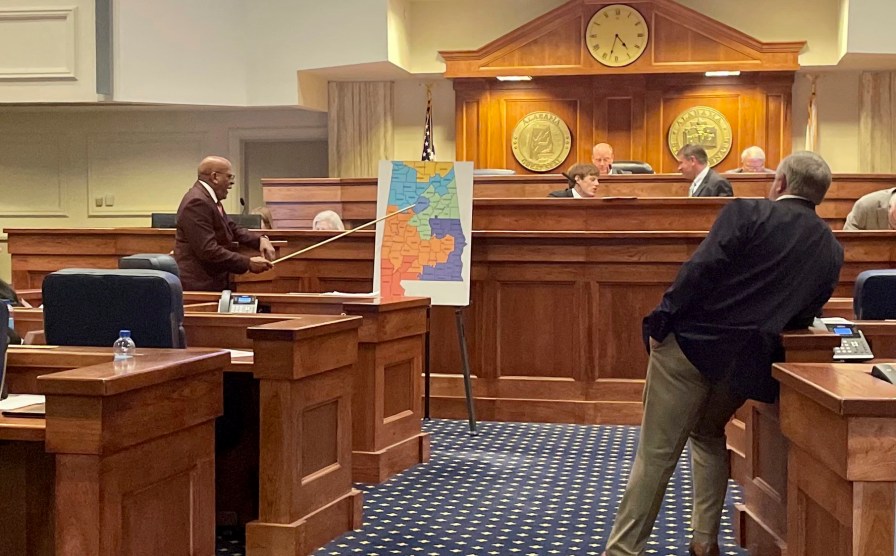
Michael Wyke/AP
A Texas high school that suspended a Black student for more than a month over the length of his dreadlocks is removing the student and transferring him to an alternative disciplinary program. Starting yesterday, Darryl George, an 18-year-old junior at Barbers Hill High School in Mont Belvieu, east of Houston, will report to EPIC until November 29.
“Your child has engaged in chronic or repeated disciplinary infractions that violate the district’s previously communicated standards of student conduct,” school officials wrote to George’s family in a letter obtained by the New York Times.
Barbers Hill High School’s decision to send George to the alternative program extends a pattern of disciplinary actions taken against Black students over their hairstyles. As my colleague nia t. evans and I wrote in a piece just last week, George’s suspension on August 31 came just one day before Texas’s CROWN Act, a law that prohibits race-based hair discrimination, was slated to go into effect. In 2020, the school came under fire for similarly suspending another Black student, DeAndre Arnold, over his dreadlocks, ordering him to cut them to attend graduation.
“The racism is being shown,” said Candice Matthews, a civil rights advocate and spokesperson to the George family, after Barber Hills High School told George he was being transferred. Following his suspension in August, George’s parents filed a lawsuit against Texas Gov. Greg Abbott for failure to enforce the CROWN Act. But the issue reflects a far wider and systemic racism:
The episodes at Barbers Hills High reflect a longstanding issue in the United States, particularly in schools where dress codes can discriminate against students. You saw it in the video of a New Jersey high school wrestler forced to cut his locs after a referee claimed that keeping them would forfeit the match. When a North Carolina charter school demanded that a young Indigenous boy cut his hair before returning to class after spring break. Such incidents, widely condemned as racist, have sparked laws similar to the CROWN Act around the country. Despite these protections, school administrators still enforce policies that target non-white students.
We spoke with Dr. Bettina Love, a professor of education at Columbia University and author of Punished for Dreaming: How School Reform Harms Black Children and How We Heal, to discuss George’s case and the harm these discriminatory policies have on students of color.
“It’s important to note this story isn’t just about hair. It’s about anti-Blackness,” Love told Mother Jones. “Black people’s hair is such an important symbol of our identity. It’s about who we are and how we express ourselves…Our hair is one of the biggest reflections of our blackness and so it is always going to be under attack.”

















